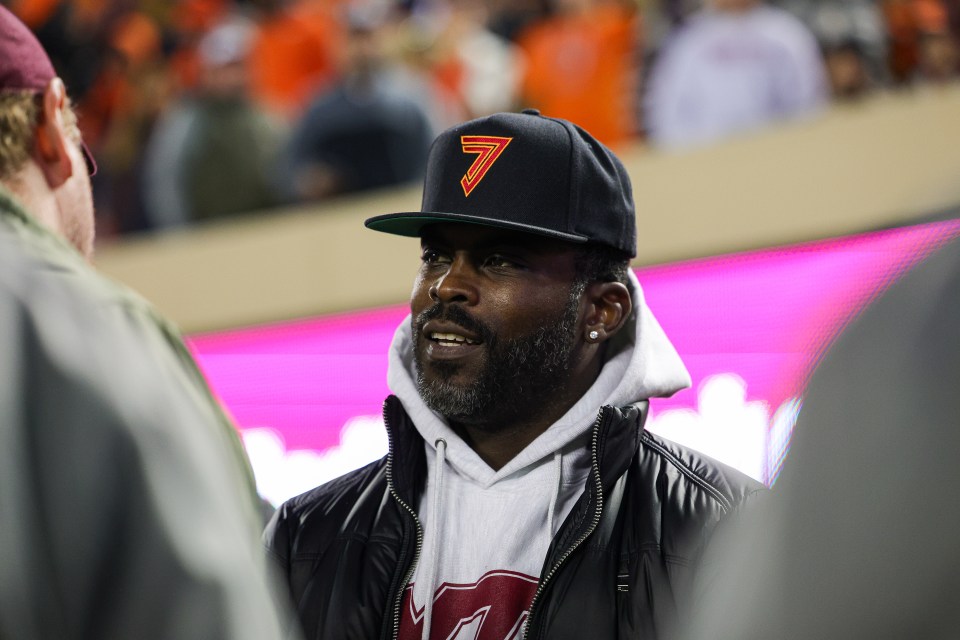I’m slim, active and eat well yet I live with ‘silent killer’ linked to obesity – don’t assume you’re safe
NICKI Hornby was in what she considered to be decent health.
She was active, ate a relatively healthy diet, and had a BMI in the “healthy” weight category.
So when she started to feel very tired and noticed she looked a little slimmer aged 47, she didn’t think too much of it.
“I felt out of sorts, but I thought I might just be experiencing early menopause,” Nicki said.
What she wasn’t prepared for was being told she had type 2 diabetes.
“I didn’t have any of the typical symptoms like being thirsty or going to the toilet more than usual, so it was very much a surprise when a blood test confirmed my diagnosis,” Nicki, from Somerset, said.
READ MORE ON DIABETES
“I’m 5ft 4in and weigh 9st 2lbs (58kg), and I can see people looking at me trying to process that I have type 2 diabetes.
“That’s quite hurtful and impactful.”
Type 2 diabetes occurs when the body doesn’t produce enough insulin, or the body’s cells don’t react to it properly.
You may be at higher risk if you eat unhealthily, have a family history of the condition, take certain medications for a long time, have high blood pressure, or have gestational diabetes during pregnancy.
People of Asian, Black African or African Caribbean origin are also at increased risk, according to the NHS.
But the two main causes of type 2 diabetes are being overweight and a waist size that is too large.
Mum with ‘smelling superpower’ sniffed out son’s diabetes after noticing strange stench
Based on these risk factors, Nicki, who has a BMI of 21.9, was considered ‘safe’.
But no matter how thin or fit you are, and whether you have relatives with it or not, you can still get diabetes, she said.
“The biggest misconception for me is that people assume you’ve caused your diabetes by having an unhealthy lifestyle or by not looking after yourself through drinking and eating too much,” Nicki, now 56, added.
“That isn’t necessarily the case, and it certainly wasn’t the case for me and I’m not alone in that.”
Even nine years on, Nicki, who is married, still finds many people are clueless.
“I still get people saying in surprise, ‘What? You’ve got type 2 diabetes? You can’t possibly have type 2 diabetes’,” she added.
“That’s not just friends or family, it’s also healthcare professionals, so for me that is the biggest stigma.
“We need to move away from that stereotypical vision of what someone with type 2 diabetes looks like.”
Nicki said she used to shy away from telling people about her condition, but now she is incredibly open.
“My response to negative experiences has become a bit more forthright and I won’t just shyly say, ‘I’ve got type 2 diabetes’,” she said.
“Instead I strongly say, ‘Yes I’ve got type 2 diabetes, despite having a healthy diet and being active, and I’ve never been overweight nor is there type 2 diabetes in my family’.
“I now explain more about my situation and in my own small way I’m trying to educate people that if it can happen to me, it could happen to anybody.
“As time has gone on, I’ve become more confident in my knowledge about diabetes, because my diagnosis was so out of the blue and it was a steep learning curve for me.
“So I do feel justified in challenging people when they clearly don’t have the right understanding about the condition.”
‘WE’VE BECOME TOO BLASÉ’
An estimated 1.2million people are currently living with type 2 diabetes but are yet to be diagnosed, according to Diabetes UK.
The condition can go undetected for years because its symptoms can be hard to spot or brushed off as something else, meaning it’s often dubbed a ‘silent killer’.
More than 3.2million are thought to be at risk of developing it.
Every week, diabetes leads to 184 amputations, more than 930 strokes, 660 heart attacks and 2,990 cases of heart failure.
The NHS spends at least £10billion a year on diabetes – about 10 per cent of its entire budget.
Almost 80 per cent of the money goes towards treating complications, and in some hospitals, over a quarter of beds are used by people with diabetes.
In short, diabetes is serious – yet many people don’t think of it as such, according to Nicki.
“I do wonder if diabetes is not being taken seriously enough and we’ve become too blasé about it,” she said.
Type 1 and type 2 diabetes
THERE are two main types of diabetes, which causes a person’s blood sugar level to become too high.
Type 1 diabetes is a lifelong condition where the body’s immune system attacks and destroys the cells that produce the hormone insulin.
It affects around 344,000 people in the UK.
Type 2 diabetes on the other hand is far more common, accounting for more than 90 per cent of the 4.4million adults with diabetes.
It occurs when the body doesn’t produce enough insulin, or the body’s cells don’t react to it properly.
There are no lifestyle changes you can make to lower your risk of type 1 diabetes.
But you may be at higher risk of type 2 diabetes if you are overweight or obese, eat unhealthily, have a family history of the condition, take certain medications for a long time, have high blood pressure, and have gestational diabetes during pregnancy.
People of Asian, Black African or African Caribbean origin are also at increased risk.
An estimated 1.2million people are currently living with type 2 diabetes but are yet to be diagnosed.
More than 3.2million are thought to be at risk of developing the condition.
The most common symptoms are:
- Needing to wee a lot, especially at night
- Being really thirsty
- Feeling more tired than usual
- Losing weight without trying to
- Genital itching or thrush
- Cuts and wounds taking longer to heal
- Blurred vision
- Increased hunger
For more information about the signs and symptoms of all types of diabetes, as well as support, visit diabetes.org.uk or call helpline number 0345 123 2399.
Source: NHS and Diabetes UK
“While some people are able to put their type 2 diabetes into remission with the right support, this is not the case for everyone, and it’s not just a case of simply changing your diet.
“Also, people make assumptions about the condition.
“For example, when you’re having a hypo (when blood sugar levels are too low, causing dizziness, confusion and even seizures), people often mistake that for being drunk and so you can easily be misjudged.
“Mentally, it really infuriates me because diabetes is serious.
“I never wanted this condition, but I’ve got to live with it and I do find it really difficult to come to terms with other people’s attitudes about diabetes as if this is something I wished upon myself.
“Coming to terms with my diabetes is an ongoing process that I’m still going through.”
She continued: “I’m no longer as angry as I was, which was my overriding emotion for many years.
“I was angry about the diagnosis, angry about the unfairness of it.
“I still do get resentful about it, but I’m getting better at that.
“However, I do get cross when people judge, and I don’t think that will ever go away.
Read More on The US Sun
“People need to know not to make assumptions based on what they think they know about diabetes, as it’s probably incorrect and not as straightforward as some publicity would have them believe.
“We need to educate people more and make sure there’s a better understanding of diabetes and it doesn’t follow that you have to be overweight to have type 2 diabetes.”
How to lower your risk of type 2 diabetes
According to Diabetes UK, there are a few diet tweaks you can make to lower your risk of type 2 diabetes:
- Choose drinks without added sugar – skip out the sugar in your tea and coffee and stay away from fizzy and energy drinks
- Eat whole grains such as brown rice, wholewheat pasta, wholemeal flour, wholegrain bread and oats instead of refined carbs
- Cut down on red and processed meat like bacon, ham, sausages, pork, beef and lamb
- Eat plenty of fruit and veg – apples, grapes, berries, and green leafy veg such as spinach, kale, watercress, and rocket have been associated with reduced risk of type 2 diabetes
- Have unsweetened yoghurt and cheese
- Cut down on booze – and have a few days a week with none at all
- Have healthy snacks like unsweetened yoghurt, unsalted nuts, seeds and fruit and veg
- Eat healthy fats included in nuts, seeds, avocados and olive oil
- Cut down on salt
- Get your vitamins and minerals from food instead of tablets
Note: Thank you for visiting our website! We strive to keep you informed with the latest updates based on expected timelines, although please note that we are not affiliated with any official bodies. Our team is committed to ensuring accuracy and transparency in our reporting, verifying all information before publication. We aim to bring you reliable news, and if you have any questions or concerns about our content, feel free to reach out to us via email. We appreciate your trust and support!














